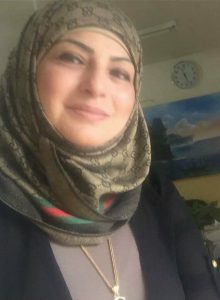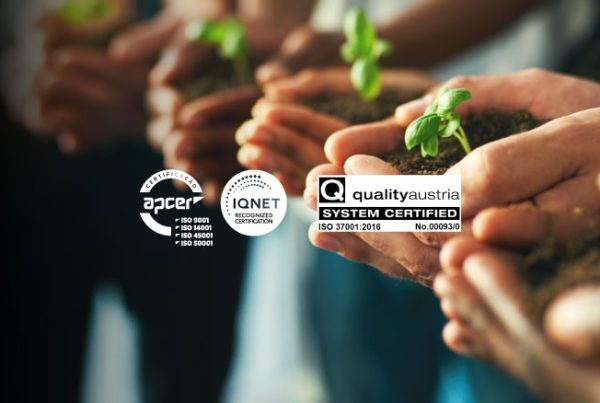In EFL context, specifically in developing countries, where traditional learning and teaching is prevailing since recently, the promotion for using technology in learning foreign languages becomes crucial. The students there are very eager to engage in such new trends of learning as a natural development of their active using of different types of mobile applications, electronic games and social media in their daily living, so all that they needed was to put their feed on the first step. This state requires the creation of motivating ways of teaching that can break the ice of traditional teaching and provide the process of learning with a push of stimulation and enthusiasm.
Among the many types of e-learning, blended learning is the suitable one that can be used with different educational contexts. Its nature, which represents a mixture of traditional face-to-face learning with the use of technology and/or internet resources, can show a clear sense of acceptance among learners. In such a learning environment, the learners are no more suffer from the complexity of using technology, as with virtual learning, but they can gain the help of their teachers within each step.
Different models of blended learning are mentioned that most writers and teachers agree on. Each context of learning requires a specific model that is not supposed to be similar to other contexts in the world. These models include; Self-blend, Online, Personalized blend, Rotation, Flex, Online lab, and Face-to-face.
This approach of learning can provide both teachers and learners with a large quantity of flexibility as they can access the material anytime and anywhere. Its varied nature can treat the matter of learners’ individual differences easily by covering all learning styles of learners. It can provide a meaningful and effective learning experience for learners by its motivated nature. What is important in this approach of learning is the autonomous impression that imposed on learners by letting them experience their independence in learning and assessment.
This approach of learning needs really motivated and talented teachers that can solve all kinds of obstacles that may face them during applying it including economical and practical challenges. The resources of blended learning that can be used by teachers are varied from the totally sponsored by the ministry of higher education where colleges are responsible for providing all learning facilities, and the resources that teachers can bring either by themselves or by asking learners to depend on their own tools and applications. So, the problem is not related to the availability of technological resources all the time but with the insistence of teachers to apply them.
English language students in EFL environment, where the English language is used only inside classes and schools and there is no such use of it informally or in social daily life, need to access more to authentic material and to listen to native speakers of the language. These kinds of needs can be facilitated by blended learning. In addition, teachers need to apply learner-centered education approach instead of teacher-centered education in order to reach maximum benefits on the side of the learners which are the aim that blended learning approach calls for.
In English department, which is my own context of teaching, the use of blended learning is crucial. I feel it is my responsibility to prepare my students to use different types of activities via different technological tools to ensure that they gain knowledge from its original flow, to help them indulged more in the world of technology to deal with learning autonomously, to promote for more cooperative work, to add the factors of motivation and stimulation, and to facilitate overall their learning process. I and my colleagues in the English department used to make technology as a vehicle to develop the four skills of language; listening, speaking, reading, and writing. Different technological tools are used to present the material inside classes with the help of teachers themselves. They also keen to give their students home reading as homework that consists of reports and assignments which need exclusively online resources. Such use of technology is a pure presentation of blended learning.
As a teacher of student-teachers, I encourage my students to use technology in their classes in future time by being a model to them. Teaching the English language for all stages, beginning with primary stages and ends up with mature English language learners in colleges, need to make the learners as axial part in the process of learning. This state does not occur unless there is a real insistence on using technological innovation in class and assign their learners essential roles. Neglecting them, by making them passive receivers of knowledge, may lead to a slow development which in turn may turn the whole process of learning into a boring and aimless one.
Cambridge papers in ELT series by King (2016) mentions eight benefits of applying blended learning approach for learners and teachers of English language which, as I think, need to be taken into consideration.
They are:
- Responding more appropriately to learning styles.
- A deeper approach to learning.
- More individual attention.
- Maximizing social interaction in the classroom.
- Creating confident learners.
- Access to rich interactive input.
- Getting just-in-time support.
- Encouraging discovery and fostering autonomy.
References King, A. (2016). Blended language learning: Part of the Cambridge Papers in ELT series. [pdf] Cambridge: Cambridge University Press.

Liqaa has a PhD in English Language Teaching from the University of Baghdad. She currently works as Asst. Prof. in English Department, College of Education for Humanities, University of Diyala, Iraq. She is a reviewer in two Iraqi specialized journals. She presented many research papers in different international conferences such as LINELT 2013 in Antalya, international conference on modern trends in English language and literature 2015 in Malaysia, GRDS international conference 2017 in Dubai, ISER International conference 2018 in Thailand and the International conference on quality in higher education in the University of Istanbul / 5th December 2018 in Turkey. She published more than twelve research papers in relation to English language teaching inside and outside Iraq. Her research interests include the new trends of English language teaching and the use of innovative technologies in teaching English as a foreign language. https://www.researchgate.net/profile/Liqaa_Al-Obaydi




